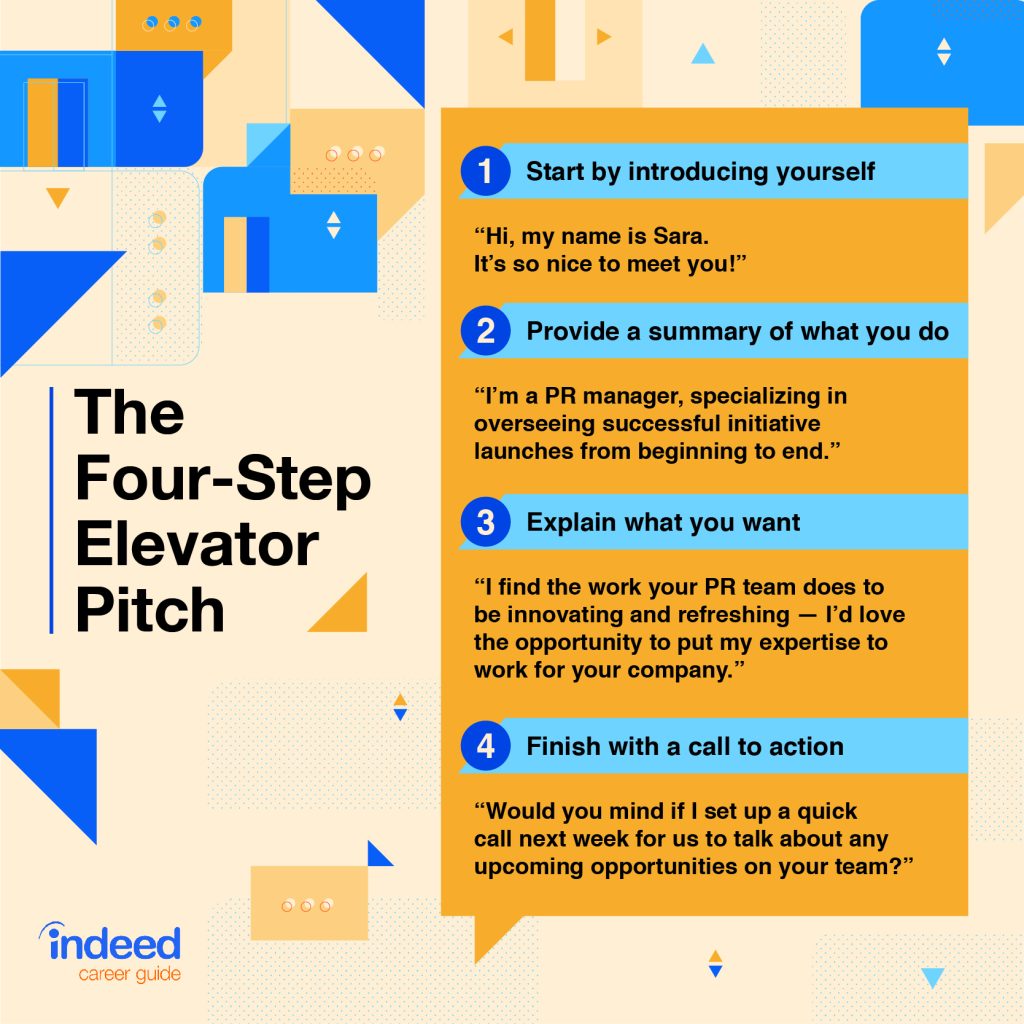Published on Feb 27, 2024
For anybody in the workplace, time is the most valuable asset to maintain. We try to use as little of it as possible. This can complicate networking, since networking is all about making business connections that will last. So how do we make solid business connections, but only take up a minute of someone’s time? The elevator pitch. An elevator pitch is a selling statement, taking only the time it takes to go from the lobby to the second floor.Here are some quick tips for a stellar pitch:
1. Start Strong
It’s important to have a memorable opening to hook your audience in a pitch just like in an essay. Catch someone’s attention with a bold statement (“I intend to change the world in less than a year”) or a personal, more anecdotal approach (“When I was younger, all I wanted to do was be a writer”). Keep in mind, the ideal pitch should only be a minute or less.
2. Be confident
You can’t sell something if you don’t believe in the product, especially if the product is you. As you go through some self-evaluation, hype yourself up. You are awesome. You might not have 10 years of experience under your belt, but you do have a great personality and a can-do attitude. Use those to your advantage.
3. Be concise
What do you need this person to know about you? Always approach a pitch with a goal in mind. Do you want to convince someone they should hire you? Or would you rather find someone to believe in and support your vision?What do you need this person to know about you? Always approach a pitch with a goal in mind. Do you want to convince someone they should hire you? Or would you rather find someone to believe in and support your vision?
4. Have key talking points
First, say who you are. Try to include your organization or graduation year to make yourself more memorable. Next, state what the goal is. Do you want to work for them? Do you want to get more experience in your field? Do you need a recommendation? Then talk about the why; why they should believe in your goal? This can include personal strengths or recommendations. Finally, end with where they can contact you.
5. Be flexible about time
Be ready to keep your points short, or to go into detail if asked. A good pitch will leave room for questions, so you’ll need answers. How did you come up with your goal? Why are you introducing yourself to this person? Keep possible questions like this in mind.
6. Know who you’re talking to
It’s important to know your audience, especially when you’re marketing yourself. Use the right manner for your audience. Don’t keep it casual with someone who would be your boss unless they suggest otherwise. Try to avoid slang in your speech to keep a professional tone.
7. They’re just people
We know. Networking is intimidating. Remember: they’re a person, first and foremost. Treat them like a person and not a threat. This will make it easier to talk to them and to make a connection. Clear your brain of that fear fog and talk about your strengths like a pro.
Below is an example of what an elevator pitch may look like:

Need help with what happens after a successful pitch? Use Mango Connects or check out our blogs at Career Scoop for more helpful tips for networking and that first follow up message!